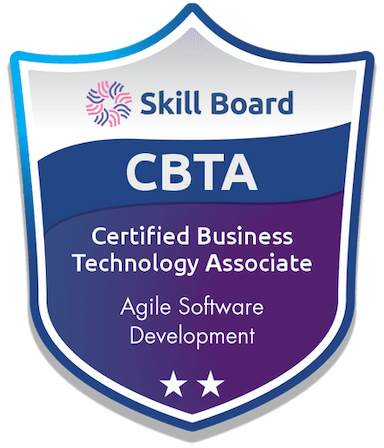- Experienced individuals with 2+ years of Agile experience.
- Developers, QAs and Operations Associates with 2+ years of IT experience.
- Anyone aspiring to work in Agile.
- Understanding of agile SDLC processes.
- Understanding of Scrum and Kanban methodologies.
- Understanding of agile team roles, interactions, project management and delivery of working software using agile.
- Certified Associates are required to recertify after 3 years, either by taking a recertification assessment or through continuing education credits.
- Continuing education credits may be earned by taking up an equivalent or higher industry certification.
| Domain | Weightage |
|---|---|
Agile Manifesto & Principles Agile Manifesto, Twelve (12) Principles of Agile. | 0-10% |
Agile Software Development Methodologies Agile Basics, Scrum, Kanban, Extreme Programming (XP), Feature Driven Development (FDD), Lean Software Development, Agile Unified Process (AUP), Crystal and Dynamic Systems Development Method (DSDM). | 5-15% |
Agile Software Development Concepts & Terminologies Product Vision, MVP, Product Backlog, Release Backlog, Sprint Backlog, Backlog Refinement, Epics, Features, User Story, Task, Business Value, Acceptance Criteria, Defining Done Criteria, Prioritization, Estimation, Technical Spike, Release Management, Burndown Chart, Technical Debt. | 30-40% |
Team Roles & Ceremonies Agile Coach, Scrum Master, Product Owner, Team Members, Sprint Planning, Daily Standup, Iteration Review, Retrospective. | 20-30% |
Requirements & User Story Development Requirements discovery, Business value, Story Grooming, Epic Breakdown, 3C's and INVEST criteria for user story, Splitting user story. | 10-20% |
Agile Best Practices Stakeholder Engagement, Communication, Agile Requirements, Change Management, Estimations. | 5-10% |

